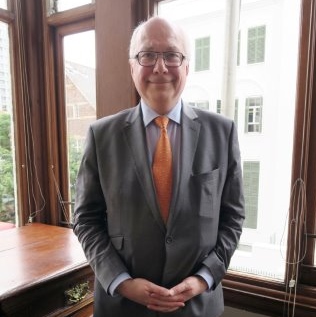
News

France takes anti-Semitism seriously
TALI FEINBERG
He spoke at a luncheon in Cape Town, where he hosted members of the media.
Peaucelle acknowledged the increasing levels of anti-Semitism in France as a reality and believes it is linked to radical ideologies. “We have all the legal instruments to fight anti-Semitism,” he said. Security has also been increased at shuls, schools and Jewish community centres.
However, the rate of aliyah is at its highest ever from France at the moment, which has become one of the top springboards for aliyah in the Western world.
Peaucelle, however, cautions about the distinction between anti-Semitism and anti-Israel. “Any denial of Israel’s right to exist is anti-Semitism,” he states. He asked that the Jewish community should carefully discern between criticism of Israel and anti-Semitism. “Politics should not be decided by religion,” he said.
In France, Peaucelle mediates between religious groups and the government and advises on religious issues, particularly related to the Middle East.
“We are peace brokers, not peace ‘brakers’,” he said at the gathering that took place last week Friday just hours after President Jacob Zuma’s fateful Cabinet reshuffle. In response to this he recalled the current “miracle” of good relations between France and Germany, which were hostile for decades before. He said that if SA is hitting “rock bottom”, then it could only improve from here.
A career diplomat, he has been the French Ambassador to Israel, Saudi Arabia, Iran, Turkey and Qatar. He now advises the French Foreign Minister on complex religious issues, particularly in the context of France’s religious laws known as “laïcité” (translated loosely as “secularity” or the principle of separation of church and state).
The purpose of his visit to South Africa was twofold: to better understand the very specific South African interfaith coexistence and dialogue model – its history, its successes and challenges; and also to explain the French model of secularism.
Laïcité is a core concept in the French constitution, which formally states that France is a secular republic. It came into law in 1905, following over three decades of anti-religious violence and tensions.
It is based on the notions of “liberty, equality and fraternity”, aiming to give religious minorities the right to practise their religion as they see fit. However, the concept has often been misunderstood.
For example, under the “equality” aspect of the law, France has banned the wearing of religious symbols (such as kippot) in public schools. While this may seem like an attack on religion, it was actually put in place to ensure that no child was bullied for wearing or not wearing a religious symbol, making all pupils equal in the public school space.
However, in all other public spaces, citizens are encouraged to wear religious symbols and dress. When some municipalities banned the wearing of a “burqini” by Muslim women last year, this was overturned by the courts because it was against the principle of liberty in “laïcité”.
Another example is when France was asked to assist in restoring cemeteries in Algeria, which have fallen into disrepair. Peaucelle was working closely with the Chief Rabbi of France to ensure that this process in the Jewish sections of the cemeteries was done according to halachah.
Peaucelle emphasized that while religion can’t make the decisions for politicians, it has a crucial role to play in ensuring the moral integrity of all South Africans.




